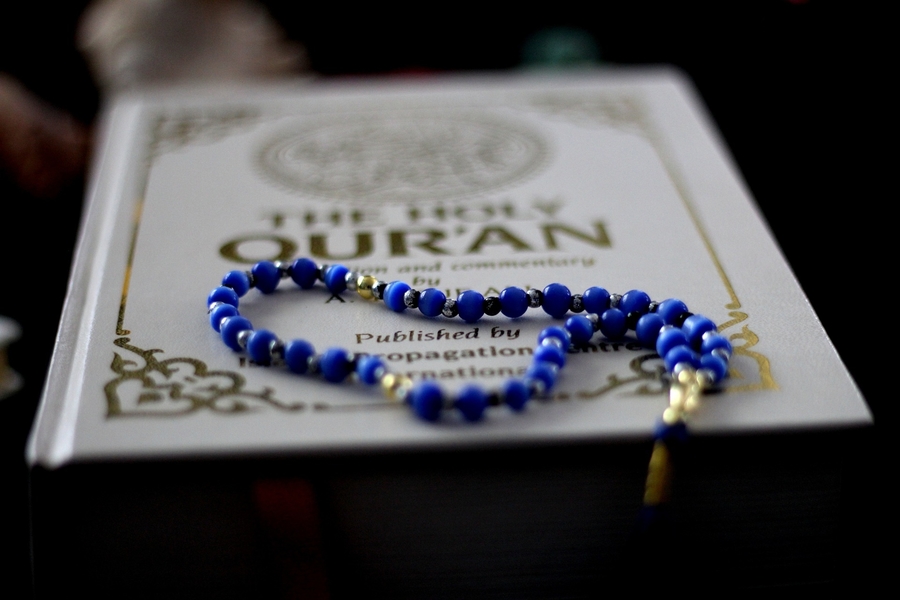Surah Bayinnah, the Clear Evidence, also known as Lum yakunilatheena kafaru and surat al Qayyimah, is the 98th Chapter of the Holy Quran situated in the 30th juz. It contains 8 verses and was revealed in Madinah after the migration, according to the majority of scholars.
Meaning of Surah Bayyinah
The surah shows how the bayyinah or the evidence is a source of happiness and joy for some people, who gained paradise; while for others, it was a source of sadness and misguidance for others who ended up in Jahannam (hell).
The surah is in reference to two groups of people – the people of the book ie. those who have had divinely revealed books in the past; and the polytheists. Among these two groups were people who wouldn’t stop in their disbelief and kept asking for more proofs. So the surah states how they would not leave until there came to them the clear evidence.
Allah then states He has already given them a clear proof – a messenger from among them (SAW) reciting purified pages. The surah then informs how in the past, the people of the book differed after clear evidences had come to them, and fell into division.
Surah | |
| Name | Al-Bayyinah |
| Meaning | The Evidence |
| Number of Verses | 8 |
| Place of Revelation | Madinah |
| Chapter Number | 98 |
And Allah didn’t ask them for anything great but to worship Him alone and do right and avoid falsehood. This is done by establishing a connection with Him through salaah and to establish a connection with people through Zakah (charity).
The conclusion of the surah explains that those who continue to disbelieve of the people of the scripture and the polytheists, will be in the lowest depths of the fire. But those who believe and do righteous deeds will be the best of creatures, again showing faith alone is not enough but do make the belief practical with action.
Surah Bayyinah Arabic Text
Transliteration of surah
- Lam ya kunil lazeena kafaru min ahlil kitaabi wal mushri keena mun fak keena hattaa ta-tiya humul bayyinah
- Rasoolum minal laahi yatlu suhufam mutahharah
- Feeha kutubun qaiyimah
- Wa maa tafarraqal lazeena ootul kitaaba il-la mim b’adi ma jaa-at humul baiyyinah
- Wa maa umiroo il-la liy’abu dul laaha mukhliseena lahud-deena huna faa-a wa yuqeemus salaata wa yu-tuz zakaata; wa zaalika deenul qaiyimah
- Innal lazeena kafaru min ahlil kitaabi wal mushri keena fee nari jahan nama khaali deena feeha; ulaa-ika hum shar rul ba reeyah
- Innal lazeena aamanu wa ‘amilus saalihaati ula-ika hum khairul bareey yah
- Jazaa-uhum inda rabbihim jan naatu ‘adnin tajree min tahtihal an haaru khalideena feeha abada; radiy-yallaahu ‘anhum wa ra du ‘an zaalika liman khashiya rabbah.
Surah Bayyinah Translation
- Those who reject (Truth), among the People of the Book and among the Polytheists, were not going to depart (from their ways) until there should come to them Clear Evidence,-
- An messenger from Allah, rehearsing scriptures kept pure and holy:
- Wherein are laws (or decrees) right and straight.
- Nor did the People of the Book make schisms, until after there came to them Clear Evidence.
- And they have been commanded no more than this: To worship Allah, offering Him sincere devotion, being true (in faith); to establish regular prayer; and to practise regular charity; and that is the Religion Right and Straight.
- Those who reject (Truth), among the People of the Book and among the Polytheists, will be in Hell-Fire, to dwell therein (for aye). They are the worst of creatures.
- Those who have faith and do righteous deeds,- they are the best of creatures.
- Their reward is with Allah: Gardens of Eternity, beneath which rivers flow; they will dwell therein for ever; Allah well pleased with them, and they with Him: all this for such as fear their Lord and Cherisher.
Surah Bayyinah hadith
Recorded from Anas bin Malik (RA) that the Messenger of Allah (SAW) said to Ubayy bin Ka`b (RA) ‘’Verily, Allah has commanded me to recite to you (Those who disbelieve from among the People of the Scripture S. 98) Ubayy said, “He (Allah) mentioned me by name to you?”
The Prophet replied (SAW) ‘’Yes.’’ So he (Ubayy RA) cried. (Bukhari, Muslim, Tirmidhi).

